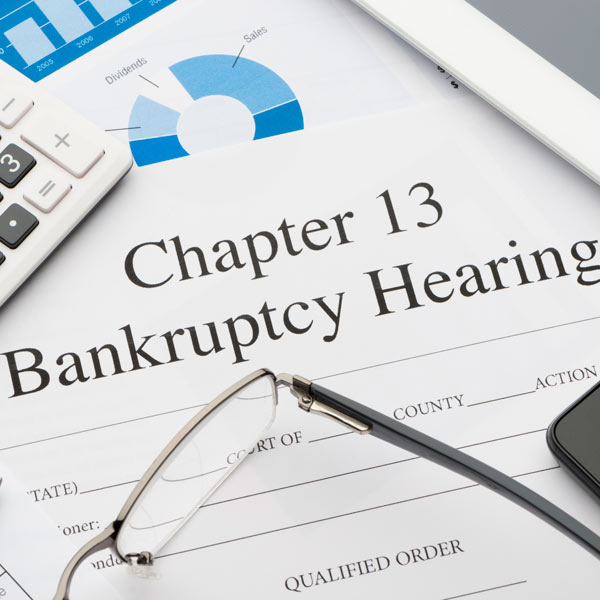Chapter 13
A Chapter 13 Is a Debt Repayment Plan
For Individuals, Married Couples, and Sole Proprietor Business Owners With Regular Income
If unsecured debts exceed $419,275 or secured debts exceed $1,257,850, you are not eligible for a Chapter 13. A Chapter 11 reorganization may be available but is much more expensive. When the case is filed, creditors are immediately prohibited from taking further collection action under a temporary restraining order, the “automatic stay,” which remains in effect as long as payments are being made under a confirmed plan. Except for long-term debts payable over longer than 5 years, like house loans, all debts are usually paid through the plan. Secured debts, like car loans, can be modified by the plan but must be paid in full up to the value of the collateral securing the debt. To the extent that the debt exceeds the value of the collateral, it is treated as unsecured and can be paid along with other unsecured debt at less than 100 cents on the dollar. Interest is normally paid on secured debts but can be reduced from the contractual rate. Unsecured debts are paid with no further interest accruing after the case is filed. When the plan is completed, any unpaid balances are discharged just like in a Chapter 7 so they can never be collected.
Lien Stripping
If the value of real estate does not exceed the balance of the first loan, any junior secured loan is treated as unsecured and can be paid at less than 100 cents on the dollar. At the end of the plan, the unpaid balance is discharged and the security interest should be released.
Ability to Pay
Just as the Court calculates eligibility in Chapter 7 through the Means Test, a similar calculation is used in Chapter 13 for debtors who have the above-median income to determine ability to pay. When the average income over the previous 6 months exceeds the allowable expenses, the income left over determines how much-unsecured debts will be paid.
Non-Exempt Property, Preferences, and Fraudulent Transfers
In Chapter 7, the trustee liquidates non-exempt property, preferences and fraudulent transfers to generate funds to pay creditors. In Chapter 13, the trustee does not liquidate property, but rather collects the plan payments and distributes the funds to creditors under the terms of the plan. The existence of non-exempt property, preferences or fraudulent transfers affects the amount that unsecured creditors receive under the plan; unsecured creditors must receive as much or more in Chapter 13 as they would receive in Chapter 7 from the liquidation of non-exempt property, preferences, and fraudulent transfers.
Client Testimonials
Wow....10/10 recommend! Jerry was amazing and made the whole process of a BK easy. I felt very comfortable and safe through the whole process. :)
Jerry White is one of a kind - He does things well and on schedule. You never have to push him, in fact, he can be hard to keep up with at times. He is available for questions and returns calls ASAP. I couldn’t have found a better attorney.
Best lawyer I ever worked with. Concise and timely. Perfect representation.
Mr. White walked us through each step of our bankruptcy process and was patient and thorough all the way to the end. He advocated on our behalf many times, and we couldn't have done it without him. Thank you!
Highly recommend the Law Office if Gerald L. White, he is very professional, supportive, and never to judge. We are so grateful to have found such wonderful people to help us.
